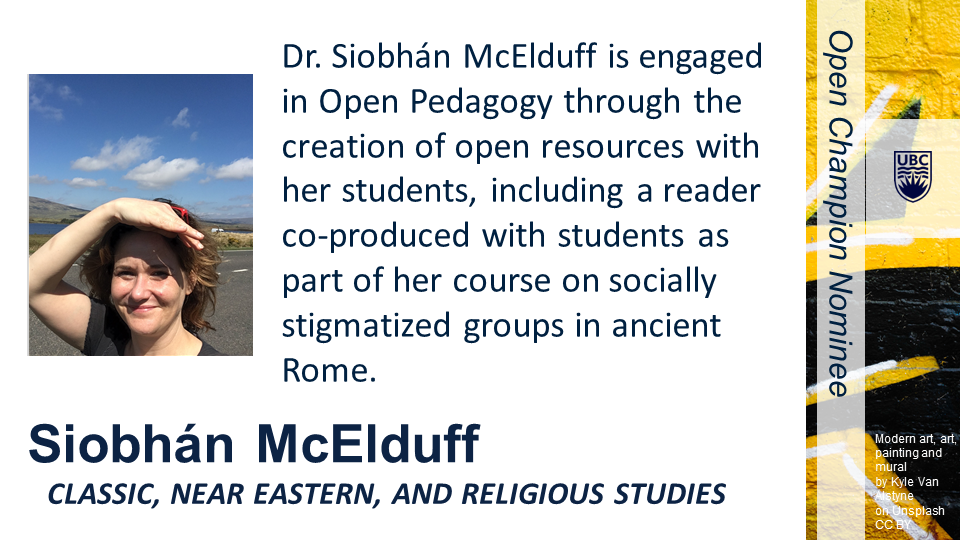This week, we hear from Siobhán McElduff, Associate Professor of Latin literature and Roman culture, and Latin Coordinator.
~~~
What motivated you do adopt/adapt/create open educational resources in your work?
I was very poor in college and remember not being able to afford books: that should not be an issue of anyone.
Can you tell us about the open education projects you have been working on?
One is a sourcebook on games and spectacles in ancient Rome, which is being turned into a Pressbook with the massive help of UBC Library. The other, UnRoman Romans, is a project that came out of student work towards building an online sourcebook on stigma and difference in the Roman empire. That will be published this year, with their help and the help of CTLT and the Public Humanities Hub.
What benefits have you seen from using open educational resources in the classroom?
Everyone can afford a copy. If they lose it, it’s not an issue – you can download it at any point or anywhere. It is yours, and I find that I can absorb student feedback and needs very easily and add more information as they need it.
What was the biggest challenge you faced and how did you overcome it?
Time. Some things take a lot of time to work with, and translating texts really takes a long time to do. Getting help recently from UBC has really helped with that though.
Do you have any advice for other faculty developing OER?
Listen to your students’ opinions; prepare for everything to take a bit longer than you think, and really enjoy having control to adjust or add to your text as you and the students want and need.
Is there anything else you’d like to add about OER at UBC?
It’s been great to see major initiatives on campus and the leadership by students in this area; I know I would never have gone for this without them being willing to work with me. Working with CTLT and the library on these projects has given me not just real substantial help, but a lot of ideas and perspectives I would never have thought about. It’s been a lot of fun. And I am really looking forward to seeing student research highlighted as part of the Public Humanities Hub’s remit in 2020. It is their work, not mine, in all honesty.
~~~
Thank you Siobhán for taking the time to participate!

